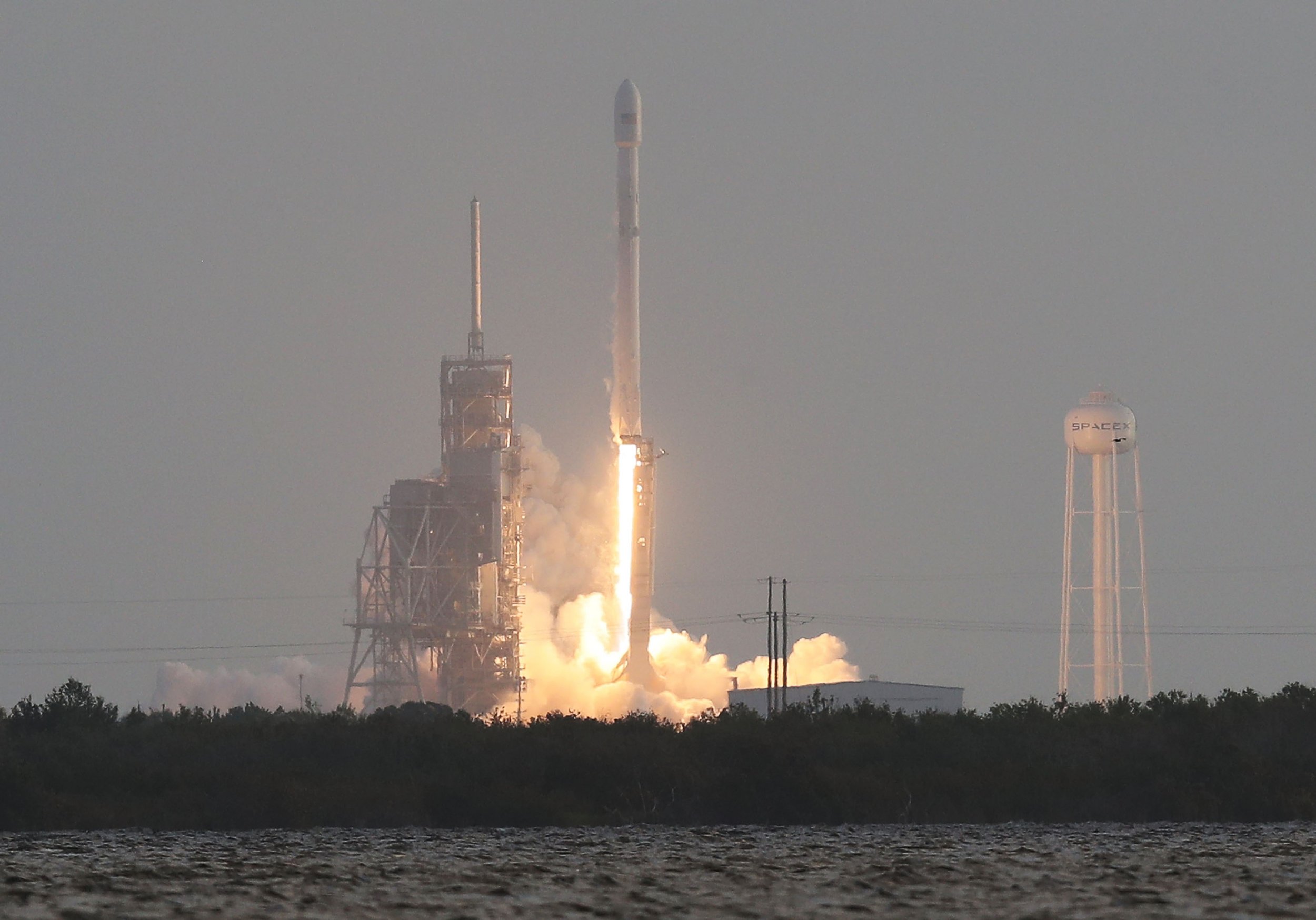
Elon Musk's dream of sending human beings to Mars has come one step closer.
The SpaceX chief executive announced late Thursday that the company's Falcon Heavy spacecraft would conduct its maiden launch in November. The spacecraft has been designed with the capacity to send a manned mission to Mars; if the test is successful, the Falcon Heavy would be the most powerful working rocket in the world.
Falcon Heavy maiden launch this November https://t.co/D4Dxq9d6hc
— Elon Musk (@elonmusk) July 28, 2017
The 27-engine rocket is capable of generating the equivalent thrust of 18 Boeing 747 jets at takeoff. SpaceX says it will be able to carry more than 54,000 kilograms into orbit, more than twice the payload of the Delta IV Heavy, currently the most powerful spacecraft in operation.
SpaceX has repeatedly pushed back the proposed date for the maiden voyage. The company first announced in 2011 that the first launch would come in 2013 or 2014, but it has been delayed on multiple occasions; Musk has said that developing the rocket was much more difficult than expected. The explosion of a SpaceX rocket on its launchpad in Florida in September 2016 also pushed back the launch.
Musk has also warned that whenever the Falcon Heavy does eventually launch, it may not be an unmitigated success. The entrepreneur told the International Space Station Research and Development Conference in July that "there's a lot that could go wrong here." For it to reach orbit, the rocket needs all 27 of its engines to ignite simultaneously, which is three times as many engines as SpaceX's Falcon 9 spacecraft.
Musk said there is "a real good chance that that vehicle does not make it to orbit. I want to make sure to set expectations accordingly. I hope it makes it far enough away from the pad that it does not cause damage—I would consider even that a win, to be honest."
SpaceX has shown signs of progress on the Falcon Heavy in recent months, and shared a video of the first static fire test of the rocket's core in May.
First static fire test of a Falcon Heavy center core completed at our McGregor, TX rocket development facility last week. pic.twitter.com/tHUHc1QiKG
— SpaceX (@SpaceX) May 9, 2017
Musk has long held an optimistic vision about bringing human beings to Mars. In in a 2016 keynote speech at the International Astronautical Congress, he said that he hoped manned missions to Mars could begin by 2022,
Outlining "two fundamental paths" facing humanity, Musk described: "One is that we stay on Earth forever and then there will be an inevitable extinction event. The alternative is to become a spacefaring civilization and a multi-planetary species."
Earlier this year, SpaceX dialed back its deadline for launching its first unmanned mission to Mars. SpaceX President Gwynne Shotwell said in February that the company was now targeting 2020, rather than 2018, as the date for launching its Dragon spacecraft to the Red Planet; the mission would constitute the first privately funded mission to Mars.
Uncommon Knowledge
Newsweek is committed to challenging conventional wisdom and finding connections in the search for common ground.
Newsweek is committed to challenging conventional wisdom and finding connections in the search for common ground.
About the writer
Conor is a staff writer for Newsweek covering Africa, with a focus on Nigeria, security and conflict.
To read how Newsweek uses AI as a newsroom tool, Click here.








